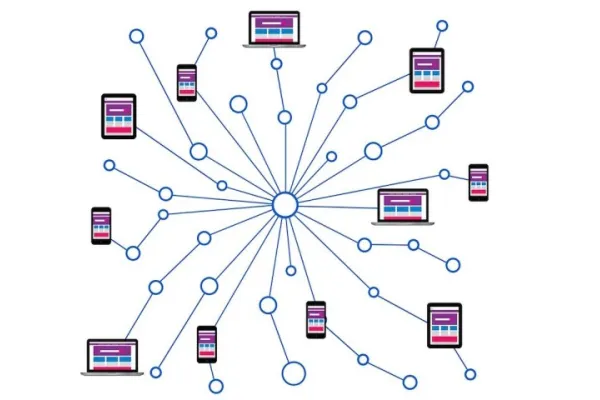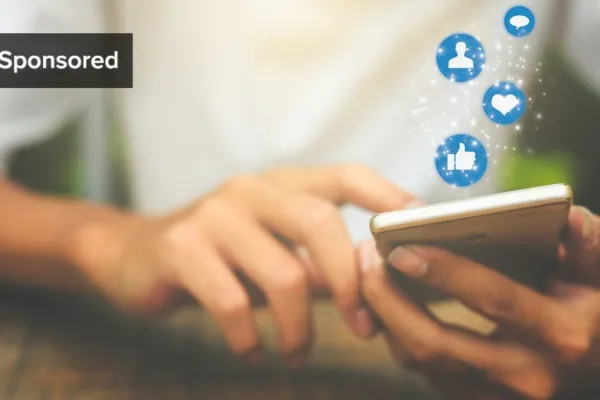 Details
Details

By Pontus Staunstrup
Digital Strategist & Head of Customer Marketing, Climeon
Sweden
Connect
The idea of using influencers, i.e people we trust or are interested in, is not a new one. In the B2B world we have used experts or pioneers in different fields for a long time. In B2C marketing we have always relied on celebrities to lend glamour and interest to our products.
But the digital transformation of media and marketing put all this on steroids by launching a new breed of influencers, that not only garnered fans but came with their own platforms as well.
What an influencer says is perceived as more trustworthy and independent.
Why B2B should use influencers
So far B2C companies have been better at making use of this, but here are four reasons why B2B companies can also benefit from working together with influencers:
- They have their own audience and platforms
- What an influencer says is perceived as more trustworthy and independent
- An influencer can add new dimensions to topics that are associated with your brand and products
- A well-known influencer can also help you reach traditional media
If you want to work with an influencer the first question to ask is What do I want to achieve?
Picking the right influencer
A common mistake made by brands today is to just look at reach – the potential number of people an influencer can reach. But like Scott Guthrie pointed out,
“Being popular isn’t the same as being influential. Gaining large numbers of followers, impressions or visitors doesn’t necessarily translate into greater influence. A smaller, more targeted following may generate higher engagement.”
RELATED: Native Advertising, AI, Blockchain and Influencers - A Match Made in Heaven?
In a similar vein, Simon Kemp of We Are Social Singapore, wrote,
“The first - and most important - point here is that reach does not equal influence. Just because a 'star' on YouTube has a few million followers, it doesn't mean that they will 'influence' your audience when it comes to your brand or product."
In other words – if you want to work with an influencer the first question to ask is What do I want to achieve?
If you want to reach a broad audience, then, by all means, pick a celebrity with lots of followers. But how often is that really the case in B2B marketing? If you really want to connect with your target audience picking another type of influencer is a better option.
Broadly influencers can be divided into three categories:
The interaction and engagement are often lower than with influencers with fewer followers.
Celebrities
This is where you find the Kardashians and other megastars. They have huge followings, but the interaction and engagement are often lower than with influencers with fewer followers. Plus, we follow them more for entertainment than because we actually trust them.
What they have is the trust of their followers. And that trust can translate into buying decisions.
Opinion makers / Experts
This category can have large followings as well, but what sets them apart from the celebrity is that they are knowledgeable within one or more areas. And have built their position on this knowledge.
RELATED: How Native Advertising Is Different in B2B and B2C Environments
More often they have a large network in a niche area, which means that their total numbers are not that impressive – but what they have is the trust of their followers. And that trust can translate into buying decisions.
Trust me when I say that no matter how niche or esoteric your solution is you have people that are deeply attached to it.
Advocates / Ambassadors
The third group consists of people that on a regular and very public basis share their interest and passion for a brand or a product. They may not have a very large audience, but can, on the other hand, be very influential in niche audiences. You find them talking up and defending your brand in social media, in sub-Reddits, and in other communities.
RELATED: How to Leverage Micro-Influencers to Expand Reach and Improve SEO
Sometimes B2B companies are completely unaware of this group, believing that their products lack fans – but trust me when I say that no matter how niche or esoteric your solution is you have people that are deeply attached to it.
This group might not see themselves as influencers, and you may not consider them such – but forming a connection with them and treating them with respect will get your content and brand shared by them wherever they go.
Consider this when picking a B2B influencer
What you want is someone that creates engagement among their followers
1. Make sure the influencer has an audience, and that it’s the right audience
Having lots of followers on social media isn’t the key thing to look for. What you want is someone that creates engagement among their followers, and that their audience actually cares about your solutions. They might not be the actual purchasers, but ideally, they can influence that group.
You have to take the time both to find out what makes them tick and why they would want to collaborate with you.
2. Take the time to get to know them
Unlike B2C influencers the B2B variety might not belong to an agency or a network. They often have a ”day job” as industry experts etc. This means that you have to take the time both to find out what makes them tick and why they would want to collaborate with you.
It’s a sad and common misconception among brands that others should work for them for free.
3. Create a relationship with them before asking/hiring them
Following on from the previous point you need to start following them on social media or in forums, engage with their content etc before you approach them for a collaboration.
RELATED: Increasing Brand Trust with Influence - and Finding the Right Influencer
But just because they behave and work in a different way from B2C influencers does not mean you don’t have to pay them! It’s a sad and common misconception among brands that others should work for them for free.
Don’t beat around the bush or hide what you want behind wordy statements.
4. Be clear and transparent about what you want them to do
A great way of winning their trust is to be very upfront with influencers in what you’re looking for and what’s in it for them. Don’t beat around the bush or hide what you want behind wordy statements.
Only collaborate with influencers you feel will strengthen your brand through who they are.
5. Never dictate what an influencer should say or do
The biggest difference between an influencer and a hired marketing specialist is that the latter have to confirm to your tone of voice, message platform or ”be on brand”. An influencer doesn’t have to do any of that.
They have their unique voice, messaging and brand – in fact, that’s why you’re paying them. Only collaborate with influencers you feel will strengthen your brand through who they are. Don’t pick a random influencer and expect them to adapt to what you want them to say.
It’s much better to create a longer relationship where both parties grow and develop.
6. Aim for a long-lasting relationship
B2B influencer marketing seldom works if you go for the odd posting here and there with different influencers. It’s much better to create a longer relationship where both parties grow and develop. And that, in turn, can create some really great content!
What is your take on B2B influencer marketing – great idea or waste of time? Share your views in the comments below.




